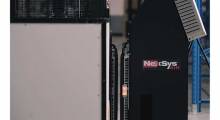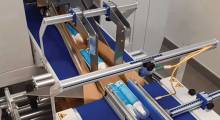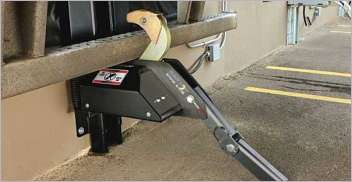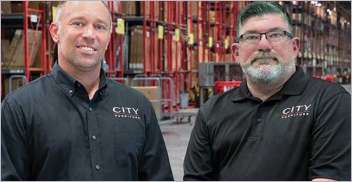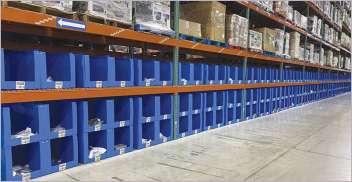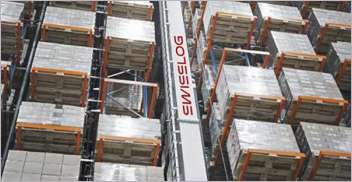Modern: What’s the state of the wooden pallet industry today? For instance, are your members, the pallet manufacturers, seeing growth in overall pallet usage?
McClendon: Pallets are in high demand, and the market is growing globally. If you follow the ISM numbers, the United States and global economies are strong and growing, and wood is benefiting.
You may know that we created the Pallet Design System, or PDS, software system. It’s now available in eight languages because of the global interest in wood pallets.
Modern: Why does the wooden pallet remain the standard, given that every year, someone believes they’ve created a better mouse trap?
McClendon: Almost every one of those mouse traps reinforces why people love wood. Wood is versatile, it’s durable, it’s efficient, it’s highly customizable and because of the focus on sustainability, wood really wins in most circumstances.
Modern: Talk a little about the sustainability aspect of wooden pallets.
McClendon: Wood is the most recycled packaging product. Virginia Tech released a study revealing that 95% of wooden pallets are recycled. Our release on that study had 82 million impressions on the Web, which shows you the interest.
I believe there’s a growing celebration of how wood fits in the corporate social responsibility goals of customers. There is a carbon calculator tool on naturespackaging.org, a consortium to promote wood packaging products. It is the most visited page on that site, and a lot of pallet users are using that information in their corporate social responsibility reports.
Alternative pallets must deal with the infrastructure question. If you don’t have an infrastructure in place to handle the whole product lifecycle, as you do with wood pallets, you have a problem.
Modern: What is the mix between new and used pallets today?
McClendon: The markets are always in flux. Virginia Tech estimated that the total number of pallets produced in 2016 was about 860 million, and of those about 510 million were new and 350 million were recycled.
Modern: Some pallet manufacturers have told us they’re seeing the acceptance of softwood pallets or hybrids of softwood and hardwood because of a shortage of hardwood
lumber. What are you hearing?
McClendon: We are seeing a shift to softwood, and hybrid softwood and hardwood pallets as well as a lot of innovation around recycled pallets. There are regional variations and some shortages of hardwood lumber. It’s another reason why companies are using the PDS system. A pallet manufacturer can show a customer who has always used a hardwood pallet that this other design will work.
Modern: We’ve all heard about the Amazon effect. Is the fact that more products are going out to consumers rather than being palletized and shipped to companies impacting the industry?
McClendon: People talk a lot about the Amazon effect, but we’re not seeing it in the numbers.
Modern: When you look one, three or five years down the road, how do you expect the pallet industry will change, if at all?
McClendon: That’s a great question. I’m going to reiterate trends we already talked about. One the global expansion of the PDS system. This system is now the international language of pallet design in part because of this transitioning to more global connectivity. And, I think when we talk one, three and five years, that CSR story really plays into the hands of the wood packaging sector.
Brent McClendon
Title: President and CEO of the National Wooden Pallet & Container Association (NWPCA)
Location: Alexandria, Va.
Experience: Five years in his current role at NWPCA. Prior to that, McClendon was the president and CEO of the International Wood Products Association for nine years. He has served as an international sales manager for a forest products company, and as a lobbyist and public affairs director for industry groups including the Southeastern Lumber Manufacturers Association and Hardwood Plywood Veneer Association.
Duties: NWPCA is the industry association that represents the interests of wooden pallet manufacturers in North America.
Article topics




